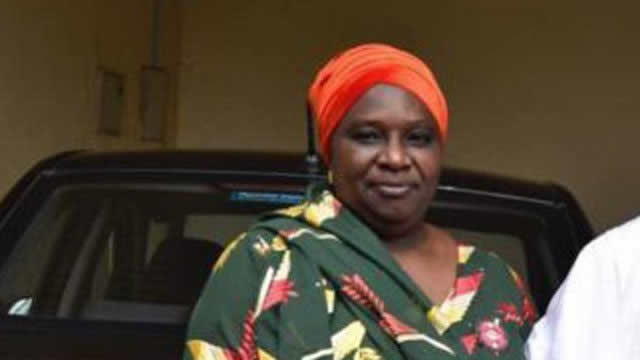
Mrs Balarabe revealed this in her keynote address on Saturday during a two-day engagement meeting in Abuja with the state’s 23 Local Government Chairmen, funded by Save the Children, in partnership with Lafiya, and Pearl among others on health financing and leadership.
The Deputy Governor noted that the strength of the Kaduna Contributory Health Management Agency lies in the formal sector, with 98% of the sector registered in the scheme, while highlighting developments in service delivery and significant benefits recorded for maternal mortality rates in the state.
She stated, “Already reports reaching us from the public facility suggest improvement in care delivery with notable gains documented for maternity and death rates in the state. I also know that this system in the state has affected 79,000 vulnerable groups, including pregnant women and children.
“The goal of the plan is to make it easier for state citizens to get high-quality healthcare at a reasonable price. This strategy encourages citizens to save a little portion of their income while the government pays for their medical expenses for themselves and their families on such days.
“In keeping with this, the government contributes one per cent of its consolidated revenue pool to this initiative to specifically target the state’s vulnerable people. This project aims to improve and advance. This engagement will seek to enhance and further strengthen the state government’s resolve to universal health coverage through health insurance.”
Regrettably, a large portion of the state’s population is in the unorganised sector and cannot be reached by the programme, thus it is important to discover novel strategies to increase enrolment to reach the unorganised sector of the state.
She emphasised the necessity of utilising the relationship already existing between local council chairmen and the general public to raise awareness of the initiative and pleaded with them to support it by allocating a portion of their Consolidated Revenue Fund.
“My chairmen your political structures are mostly drawn from the informal sector like associations, , kindly use the rapport that you have established with market women, farmers, and other communities and groups to provide them with information on the importance of enrolling in the health insurance scheme. You can also support the programme by committing a fraction of your fund from the consolidated revenue fund.”
Earlier in her speech, the state commissioner for Health Umma Ahmed said that because the health sector has surpassed the World Health Organization’s aim, the state has prioritised the sector.
“Kaduna State has made the health sector a priority since we have surpassed the WHO objective in this area. Therefore, even though we have limited resources, we place a high priority on the health and education sectors since they have helped us achieve significant progress.
“We aim to enhance the state’s healthcare system, particularly at the local level, which is why we invited the chairmen of the state’s 23 local government councils, who will bring residents closer together and lower out-of-pocket costs.
The Director-General of KADCHMA, Abubakar Hassan, also contributed by explaining that the organization was prepared to use a door-to-door strategy to guarantee they captured the people within communities.
“The door-to-door technique or methodology is a serious one we want to adopt to ensure that we reach every person inside communities. The neighborhood organisations, often referred to as community volunteers, have already received training, are mobilising, and are making sure to reach out to the populace.
Further commenting on the lack of coverage, it was stated that “The coverage is low due to the low level of awareness, which is why we are raising this awareness to raise the awareness level of the people through the chairmen and paucity of funds including the issues of culture and religion but have begun to talk to faith-based organizations and traditional authorities to begin to douse the myths around that.”





